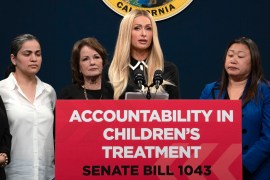Let us suppose that Congress did something really silly. Say it passed a law promising everyone a free annual trip to visit the moon. Surely even the densest reporter would have the presence of mind to ask, “How are you going to get 300 million people to the moon and back?”
Yet Congress did something almost that silly last spring. It promised almost everyone in the country access to a whole slew of preventive services with no copay or deductible. (See Timothy Jost’s summary here.) Yet I cannot recall a single reporter asking how all these extra services are going to be provided.
An even more important question is: How will the attempt by millions of American to obtain more preventive care services which can’t possibly be provided — affect the triple problems of cost, quality and access to care? Answer: It will probably make all three problems worse.
I don’t know about your experiences, but the last time I was at a primary care facility, I didn’t see a lot of doctors and nurses standing around with nothing to do. My observation is consistent with national statistics. One out of every five Americans is currently in an underserved area. And all the predictions have the doctor shortage growing worse at the same time that the need for doctors will rise to meet the increased demand for preventive care.
Let’s start with Health and Human Services Secretary Kathleen Sebelius’ announcement that all new health plans, as a result of the health law provision that took effect Sept. 23, will have to cover without any copay or deductible the services recommended by the U.S. Preventive Care Task Force. (Though the rule has now kicked in, the requirement actually applies to plans at the beginning of the plan year.)
Besides the task force list, Congress added other items, including mammograms for women in their 40s and additional services for Medicare enrollees – such as a free yearly checkup and prostate cancer (PSA) tests for men.
So what would it take to provide these services, if all the beneficiaries opted to take full advantage of them? In a 2003 study, researchers at Duke University Medical Center estimated that it would require 1,773 hours a year of the average doctor’s time – or 7.4 hours every working day – for the average doctor to counsel and facilitate patients for every procedure recommended by the task force. And remember, every so often a screening test turns up something that requires more testing and more doctor time.
Overall, it’s probably fair to say that if everyone took full advantage of all of the services the task force recommends, we would need every family doctor in America working full-time on the task – leaving no time left over for any other medical services.
In addition, there will be collateral damage when patients try to get these services. For one thing, health care costs will rise. Numerous studies have shown that screening tests and similar services add to health care costs, rather than reduce them. For the individual whose cancer is caught in its early stages, say, treatment costs are lowered because of early detection. But the savings are more than offset by the cost of screening thousands of healthy people who do not have cancer.
Another consequence: As millions of healthy people try to get free preventive services they will crowd out care for sick patients whose need for care is greater. This will especially be true if patients are in insurance pools that pay doctors different rates. Patients in higher-paying plans seeking preventive services will tend to displace the more urgent needs of patients in lower-paying plans.
The Obama administration has a dilemma. On the one hand, it wants to be seen as the champion of preventive care – because these are the only tangible services that touch the lives of the 80 percent of the population that is basically healthy. On the other hand, a vast increase in insurance coverage for such services will only increase health care costs and crowd out access to care for those who have more serious medical needs.
John C. Goodman is the president and CEO of the
National Center for Policy Analysis President and the Kellye Wright Fellow.






